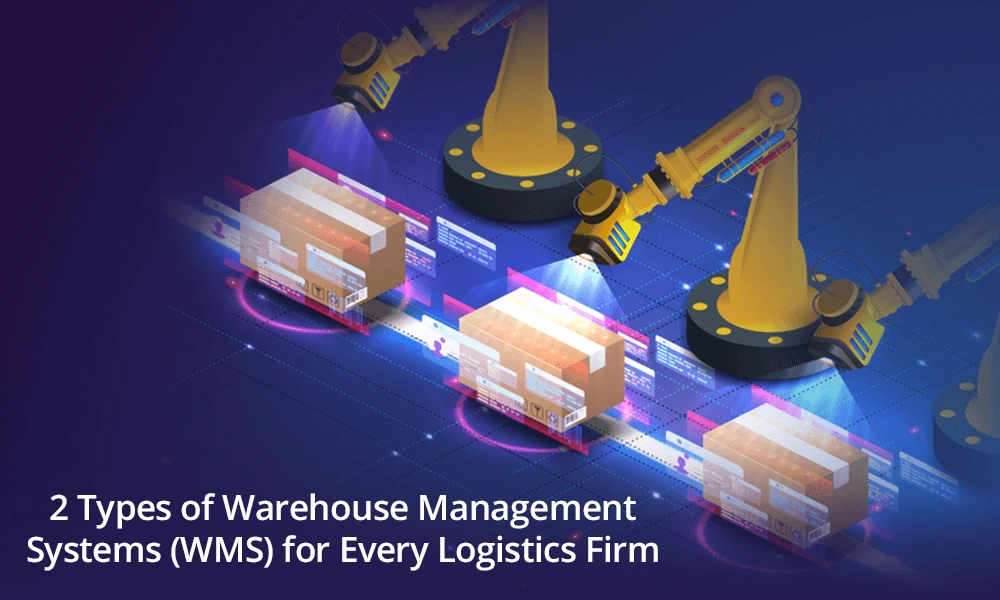A Warehouse Management System is a crucial part of third-party logistics (3PL) companies dealing with transportation of
physical goods to and from customers. Efficient time and cost management is what a business needs, and a WMS absolutely helps you with it. It is important that you choose the right warehouse management system for your business so you
don’t lack control over the different aspects of your inventory, picking and shipping, in time and quality deliveries.
Choosing the best suited type of warehouse management system for your business plays one important role in benefitting you the right way. The frequently used WMS by 3PL businesses are:
– Standalone Systems
– Cloud-Based Systems
The features of these two WMSs are more or less the same, however the delivery styles are differ.
Let’s start with knowing what exactly is a WMS
–
To be put in simple words, a warehouse management system is a software that helps you regulate your day-to-day operations and emphasises on quality business. It largely helps you monitor and control the warehouse operations with regards to picking of goods, inventory control, packaging, auditing and shipping the goods.
Another major benefit is that it helps increase the efficiency of your business to utilise less labour by sorting out operations. The warehouse space gets monitored through the feature of inventory control. You can track at any given time where an item from your inventory is Serial numbers, RFID tags and barcode totally make it easier.
The ease of managing supply chain operations is another factor that contributes to a smooth work system. In totality, a warehouse inventory management system largely reduces the chance of an error in your operations. Businesses get the ease of fulfilling orders instantaneously within time, thereby creating an effective work environment. The employees use the best practices for the operations. It also reduces the paperwork and is definitely convenient.
Here we’re listing two key features of a warehouse management system which can essentially help businesses decide better on what suits their need:
Functionality
A WMS with great functionality in accordance with your business will increase its potential when it comes to ground work. It is one of the most significant features to look for during the decision-making process. It would help you streamline every operation, control and regulate data and increase productivity.
Ease of Use
Considering the needs and goals of your business while deciding on the right WMS is an important aspect. You choose what seems the easiest to use, so the time consumption for training employees is less. A WMS integrated in your overall work system should absolutely be utilitarian, so the training time can be cut down and simultaneously arranged with the ongoing workflow.
There are other things that you would want to keep a check on, which can be concluded once you have an idea of the different types of warehouse management systems available in the market.
Types of Warehouse Management Systems
STANDALONE WAREHOUSE MANAGEMENT SYSTEM
Features
- Lowest in price
- Less functionality compared to an integrated WMS
- Only used for warehouse management features
- Used in integration with business’s original hardware and network
- No extra supply chain functions
- Includes only the best/most important functions from WMS modules – Inventory management and warehouse operations
- Expiration date tracking and barcode scanning to regulate inventory
- Cycle counting and slotting for systematic movement of the goods
- Receiving, picking, packing, and shipping are included
A great research of the best vendors could get you remarkable deals with the most sought after basic transportation management system with your standalone WMS. This proves to be ideal for small businesses.
CLOUD-BASED WAREHOUSE MANAGEMENT SYSTEM
Features
- Offers better flexibility and scalability
- Enables disaster recovery
- Has the ability to automate software updates, providing a better technology at zero additional cost
- As it is hosted on a separate or private server, the tool requires minimal IT maintenance
- It is capable of adapting to your business needs
- Less complex
- Increases business productivity irrespective of the operational size and volume
Built upon cutting-edge, a cloud-based WMS offers the same features and benefits of a traditional system but enables faster implementation. And a separate or private server provides higher data security protocols.
It is imperative for 3PL businesses to install a WMS to ensure the right product is reaching the right customer. An unsatisfactory customer can lead to loss of businesses. At SourcePro, we automate your WMS tracking with WARE-FI. It is an integrated solution that optimises every process of your warehouse.
